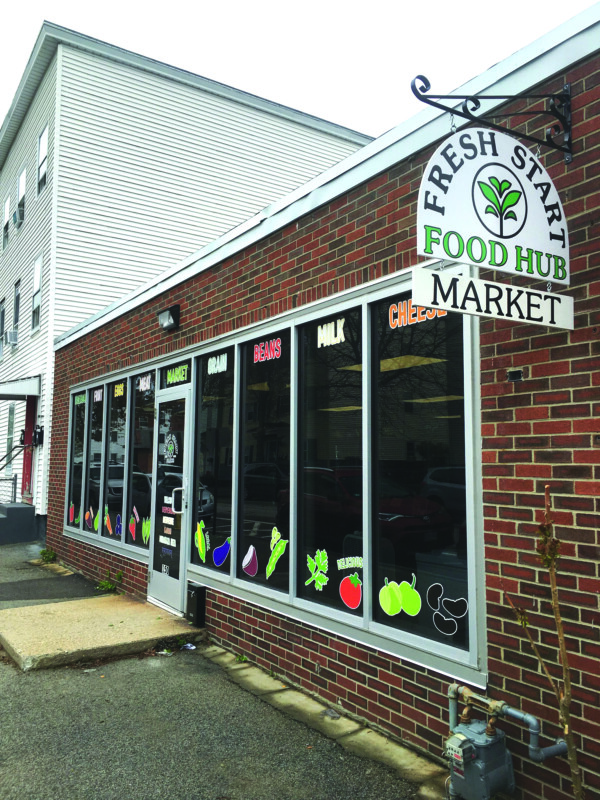News from the local food scene
• Pre-order your Greek favorites: Get your orders in now for the annual Lamb Barbecue & Food Festival, which returns to St. Nicholas Greek Orthodox Church (1160 Bridge St., Manchester) on Saturday, June 19. Now through June 13, pre-orders are being accepted online at stnicholas-man-nh.org, for items like lamb barbecue or marinated chicken dinners, pastichio (Greek lasagna), dolmathes (stuffed grape leaves) and spanakopita (spinach pie), plus a number of fresh pastries, from baklava to kourambiethes (powdered cookies) and koulourakia (butter cookies topped with sesame seeds). Pickups will be on the day of the festival, between 11:30 a.m. and 2:30 p.m., at a designated time. Walk-ins will be available starting at 2 p.m. until food is gone (takeout only, no seating available).
• More summer markets return: The New Boston Farmers Market will kick off its season on Saturday, June 12, at its usual spot on the corner of Route 13 and Meetinghouse Hill Road. According to co-manager Allison Vermette, the market will welcome craft vendors back for the first time since 2019 and will also feature some new prepared food vendors and likely food trucks throughout the season. Local musicians are due to perform on the nearby gazebo each week. The market will continue every Saturday from 10 a.m. to 1 p.m. through Oct. 9. Visit newbostonfarmersmarket.webs.com. On Tuesday, June 15, the Bedford Farmers Market is expected to begin its summer season — that market is back at the parking lot at 209 Route 101 in Bedford for the second consecutive year, manager Lauren Ritz told the Hippo. While there won’t be meat or coffee vendors this year (due to Wicked Good Butchah and Flight Coffee Co. being in the same shopping plaza), Ritz said there will be around 20 local vendors selling everything from fresh produce to maple syrup, baked goods, seafood and more. The Bedford Farmers Market will continue every Tuesday from 3 to 6 p.m. through Oct. 12. Visit bedfordfarmersmarketnh.org. For a full list of market openings, check out our coverage of the summer farmers market season in the Granite State, found on page 20 of the May 20 edition of the Hippo.
• Harvest at home: Join the Derry Public Library for Adventures in the Vegetable Garden, a two-part virtual program featuring Judith Taylor of Seeds2Plate. She’ll answer multiple questions related to your home vegetable garden, like how to combat pests and when to be ready to fire up the grill. Water management, fertilizing, harvesting and other topics will be discussed. Part 1 of this program is set for Wednesday, June 16, with Part 2 on Wednesday, June 23 — both will take place via Zoom from 6:30 to 7:45 p.m. Visit derrypl.org to register.
• The Sun Pub at Pats Peak opens: The Sun Pub, an outdoor dining experience at Pats Peak (686 Flanders Road, Henniker), will open for the season on Thursday, June 10, according to a press release. A new pub-style menu to be served on Pats Peak’s valley lodge deck includes various appetizers, sandwiches, burgers, salads, pizzas and more, plus weekly food and drink specials, and desserts like soft-serve ice cream, homemade strawberry shortcake and s’mores. New this year, there will be a full bar available, in addition to beer and wine options. Outdoor games like cornhole and disc golf baskets are also set up. Dinner is served under the lights every Thursday through Saturday from 5 to 9 p.m., weather permitting, and also around Pats Peak’s private event schedule. Visit patspeak.com/sunpub.






